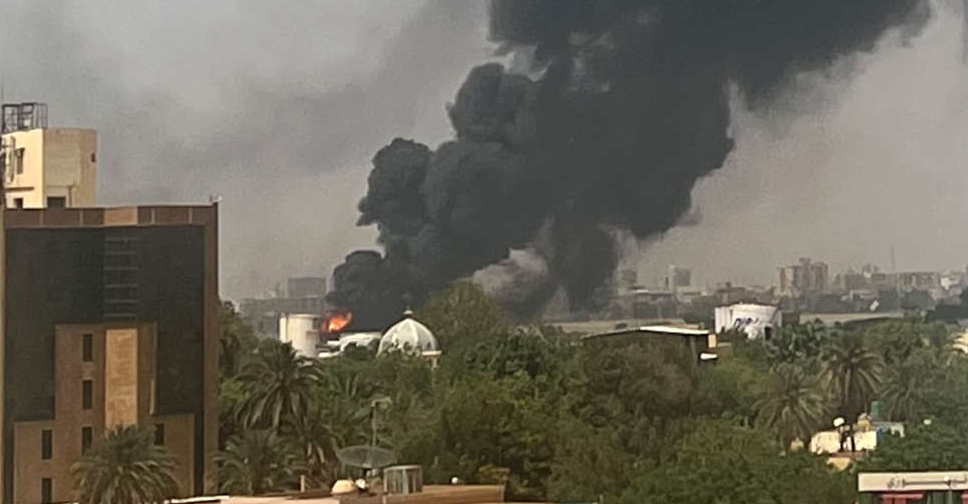
Sudan's army conducted air strikes in the capital Khartoum on Monday, residents said, seeking to win ground against its paramilitary rivals hours before a week-long ceasefire aimed at allowing delivery of aid was due to take effect.
The army also carried out air strikes into the evening on Sunday, witnesses said, targeting vehicles from mobile units of the paramilitary Rapid Support Forces (RSF) that have been operating across residential areas in the capital since the conflict between the two military factions erupted on April 15.
Both sides have said they will abide by a ceasefire starting at 21:45 local time (19:45 GMT). Though fighting has continued through previous ceasefires, this is the first truce to be formally agreed upon following negotiations.
The ceasefire deal includes a monitoring mechanism involving the army and the RSF as well as representatives from Saudi Arabia and the US, which brokered the agreement after talks in Jeddah.
The deal has raised hopes of a pause in a war that has driven nearly 1.1 million people from their homes, including more 250,000 who have fled into neighbouring countries, threatening to destabilise a volatile region.
On Monday, residents reported air strikes in Khartoum, Omdurman and Bahri, the three cities that make up the greater capital, separated by the confluence of the Blue Nile and White Nile. They also said clashes could be heard in central Khartoum.
The army has struggled to dislodge the RSF from strategic positions in central Khartoum and from neighbourhoods where it has occupied civilian buildings. The RSF, which has its roots in the feared militias that fought with the government in Darfur, is adept at ground fighting, while the army has depended largely on air strikes and heavy artillery.
TRAPPED
More than five weeks of fighting in Khartoum has trapped millions in their homes or neighbourhoods.
Residents have reported worsening lawlessness and looting, as well as crippling power and water cuts. Supplies of food have been running low in some areas, and most hospitals have ceased to operate.
The agreement brokered in Jeddah is focused on allowing aid and restoring essential services. Mediators say further talks would be needed to seek the removal of forces from urban areas to broker a permanent peace deal with civilian involvement.
The war erupted in Khartoum amid plans for army chief Abdel Fattah al-Burhan and RSF commander Mohamed Hamdan Dagalo to sign up for a new political transition towards elections under a civilian government.
Burhan and Hemedti took the top positions on Sudan's ruling council after the overthrow of former leader Omar al-Bashir during a popular uprising in 2019, sharing power with civilian groups.
In 2021, they staged a coup as a deadline to hand leadership of the transition to civilians approached.
Since last month, fighting has also flared in the western region of Darfur, already scarred by two decades of conflict and unrest that continued despite a peace deal with some groups in 2020.
Some 705 people have been killed across Sudan and at least 5,287 injured, according to the World Health Organisation, though the true death toll is believed to be much higher.

 UK inquiry finds 'chilling' cover-up of infected blood scandal
UK inquiry finds 'chilling' cover-up of infected blood scandal
 Iranian President Raisi killed in helicopter accident, state media says
Iranian President Raisi killed in helicopter accident, state media says
 ICC prosecutor seeks arrest warrants for Israeli, Hamas leaders
ICC prosecutor seeks arrest warrants for Israeli, Hamas leaders
 Assange given permission to appeal against US extradition
Assange given permission to appeal against US extradition
 Israel intends to broaden Rafah sweep, Defence Minister tells US
Israel intends to broaden Rafah sweep, Defence Minister tells US




